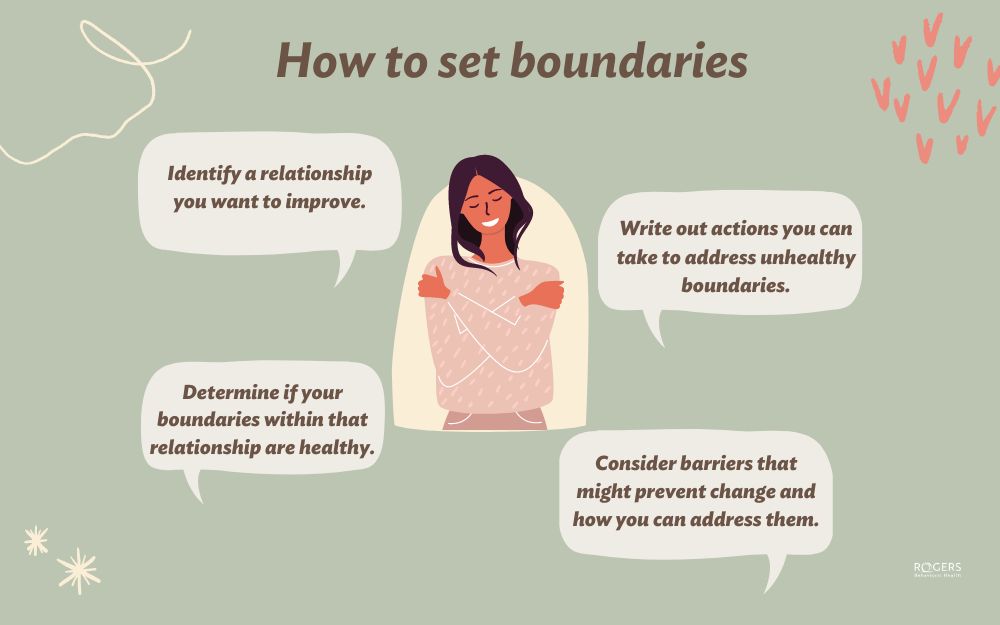By Maya D’Eon, PhD, psychologist and clinical supervisor at Rogers in San Diego
What are boundaries?
Boundaries are the invisible lines that separate us from everyone else. They can be physical, spiritual, emotional, intellectual, material, financial, or time-based.
Like other aspects of our lives, can be healthy or unhealthy. They may be healthy within the context of one relationship and unhealthy in another. We may have good boundaries in some areas of our lives, but less so in others.
Why are boundaries important?
They are the building blocks for self-care and experiencing better relationships. Healthy boundaries create opportunities for closeness and support for oneself and others. They help us attend to and value our own needs, wants, and opinions, by communicating and acting on them while also respecting and honoring the boundaries others set.
Boundaries help us set limits for what works and doesn’t work in our relationships. A healthy relationship is when both people know what is important to them and the other person. They honor and respect each other.
Boundaries may be unhealthy when we avoid closeness, keep others at arm’s length, and don’t share with family or friends. That’s having rigid boundaries. Picture it as a person building a fortress around themselves. This isn’t healthy because it limits connection and opportunities to build support and trust.
A person can have entangled boundaries by being overly involved with others’ needs, wants, and perspectives, and by over giving (think material items or information). People with entangled boundaries lack clear separation of where they end, and others begin.
How do I create and maintain boundaries?
- List a relationship you want to assess, whether it’s a work colleague, family member or friend.
- Write out if your boundaries within that context are healthy, rigid, or entangled.
- List out some specific steps you can take to address any unhealthy boundaries. For entangled boundaries, this might look like taking some “me” time, reflecting on what your independent goals are and taking steps toward those, or looking at ways to focus on your needs and wants independently. For rigid boundaries, this might look like reflecting on ways to be more open and available within the relationship, saying “yes” instead of “no” in situations that might offer wanted growth and closeness.
- Identify any barriers you think might arise and how you could handle them. Barriers may appear as internal resistance, like low motivation or energy, anxiety, or fear, or barriers could come from others.
For example, if you are someone who has entangled time boundaries with work and frequently saying yes to requests, resulting in overtime and less opportunity to foster other aspects of your life, this might mean taking a step back and looking at how much of your work identity is tied to the job or others in it. Planning to set some time limits on your day may help you reclaim greater balance and improve your self-care within work and your relationships beyond it.
Help at Rogers Behavioral Health
If you or a loved one is struggling with mental health or addiction, our compassionate team of experts is here to help. You can get started by call 800-767-4411 for a free, confidential screening.


